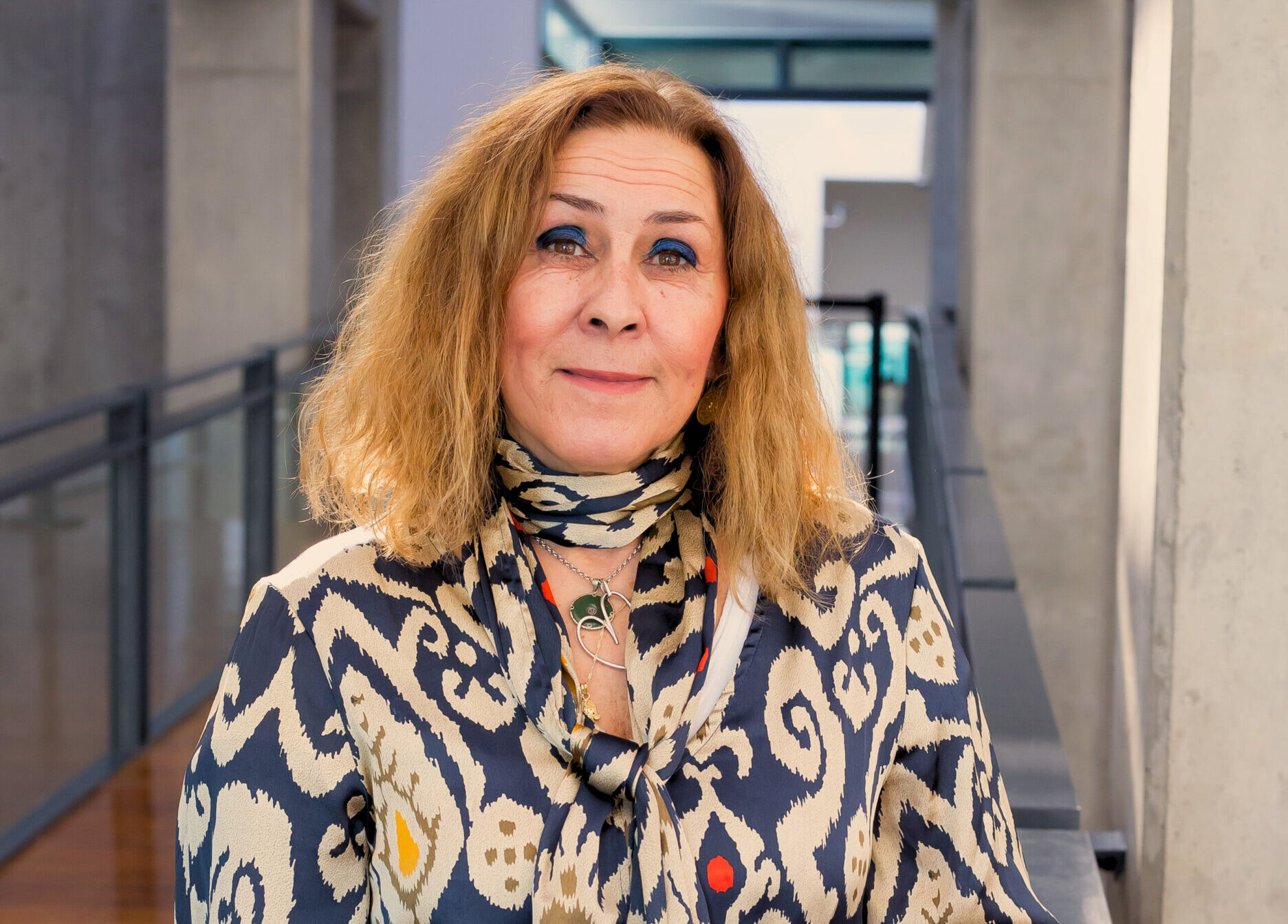Helena Baião serves as the National Coordinator of EATRIS Portugal and is based in INFARMED I.P., which is the coordinator of EATRIS Portugal. As a part of the EATRIS Spotlight programme, EATRIS Portugal will be showcased for its scientific excellence and capabilities, enhancing its visibility on both national and European levels.

Tell us a bit about yourself
I’m Helena Baião – a pharmacist trained at the University of Lisbon, where I earned my Master’s degree in Pharmaceutical Sciences. Early in my career, I had the unique opportunity to work in Macau at the Ministry of Health. I started as a hospital pharmacist assessor, coordinating areas such as production, information and education, and product management. I then moved into drug assessment and later became a GMP inspector for both traditional and modern medicines.
In 1997, I returned to Portugal and joined INFARMED I.P., where I’ve held a range of responsibilities. My work has focused on GMP, GCP, GPvP, and GDP inspections for human and veterinary medicinal products and APIs, both in Portugal and internationally. I’ve also represented INFARMED at both European and international levels.
Between 1998 and 2015, I was actively involved in PIC/S, serving as a Committee assessor, participating in expert circles and joint visits/projects, and even organising PIC/S meetings. I had the honour of serving as PIC/S Chairperson from 2012 to 2013, and as Former Chairperson from 2014 to 2015.
Since 2012, I’ve collaborated with the World Health Organization as a regulatory expert—assessing regulatory systems using the GBT tool, training national inspectors through in-country workshops, and contributing to guidance documents and manuals.
In February 2013, I took on the role of Regulatory and Scientific Advice Manager and Quality Manager at INFARMED I.P. Since then, I’ve also been actively involved in the EU Innovation Network and initiatives like STARS, helping to strengthen regulatory science training in academia and support regulatory advice to researchers.
Since January 2020, I’ve been coordinating the Regulatory and Scientific Advice Office at INFARMED I.P., and I currently serve as the National Coordinator for EATRIS ERIC.
How are you connected to EATRIS, and what does it mean to you that Portugal is a member of EATRIS?
I have been the National Representative and Coordinator for EATRIS Portugal since 2020. At INFARMED, we share EATRIS’ strategic priorities—supporting biomedical innovation and strengthening translational research—and our collaboration reflects this alignment.
Being part of EATRIS allows us to enhance Portugal’s role within a broader European research ecosystem. It offers valuable opportunities to collaborate across borders, share expertise, and contribute to a stronger, more connected infrastructure for translational medicine.
What has been the highlight of your EATRIS experience so far?
The highlight of my EATRIS experience has been witnessing the strong collaborative spirit, solution-oriented mindset, and shared commitment to advancing translational medicine. National participation in strategic projects—particularly in personalised medicine—has had a clear and positive impact. The exchanges between institutions and the training opportunities offered through EATRIS have greatly enhanced the expertise of researchers and professionals in key scientific areas. These activities have been especially valuable in building capacity and strengthening qualifications in good regulatory and scientific practices.
What about Portugal in the EATRIS Spotlight programme?
The EATRIS Spotlight Programme is a very welcome initiative, as it highlights the scientific excellence and capabilities of member countries while boosting their visibility both nationally and across Europe. The main goal of the Portuguese spotlight is to provide researchers working in digital health, artificial intelligence, and personalised medicine with a practical framework for navigating regulation, certification, and quality systems.
What advice would you give your younger self?
Here I would like to quote the Dalai Lama: “There are only two days in the year when nothing can be done. One is called yesterday and the other is called tomorrow, so today is the right day to love, believe, do, and above all, live.”
What do you like to do when you aren’t working?
It depends a lot on the season and my mood. I always like to explore museums, theatres, and musical concerts. Even just reading, walking, or volunteering brings me joy.
If you were a drug, vaccine or diagnostic, what would you be and why?
I would most likely be a vaccine. Vaccines are crucial for protecting both individuals and communities. They play a vital role in preventing the spread of infections, reducing the severity of illness, and even eradicating diseases. Vaccination is a highly effective and cost-effective public health intervention, which has saved millions of lives and is a cornerstone of disease prevention.
If you had unlimited resources and could solve one research problem, what would it be?
Currently, the critical and major health research problem to tackle with the One Health approach is the prevention and control of antimicrobial resistance (AMR). This issue requires a collaborative effort across human, animal, and environmental health sectors to mitigate the spread of drug-resistant infections and preserve the effectiveness of antibiotics for both humans and animals.
What would it surprise people to know about you?
Would you be surprised to know that I can speak Cantonese, enough to live and survive?
















